Interview about the present status of their organization and their impressions and expectations about APRSAF symposium from seven people during the APRSAF-13 symposium
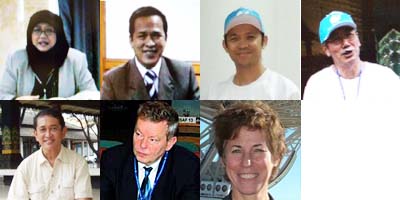
We took the interview about the present status of their organization and their impressions and expectations about APRSAF symposium from seven people during the APRSAF-13 symposium.
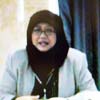
Dr Ratih Dewanti DIMYATI
Indonesian National Institute of Aeronautics and Space (LAPAN)
Director of Remote Sensing Application and Technology Development Center
The APRSAF is very useful for strengthening bilateral cooperation among the member countries to develop space technology such as the use of ALOS data and other aspects. I believe that the excellent results in the project are achieved by not only the Earth Observation WG but also other 3 WGs (Communication Satellite Applications WG, Space Education & Awareness WG and International Space Station WG). The satellite data is used in Indonesia to make an inventory of important issues such as disaster mitigation and mapping with the use of remote sensing.
We have several training programs of remote sensing for local governments, governmental institutions and universities. We also cooperate with other organizations to promote training to local governments especially in the field of disaster mitigation.
The universities related to IT have also some training courses not only for an application of remote sensing but also processing of remote sensing data using an open source software. It can promote the utilization of open source software for remote sensing data analysis.
Remote sensing is very important in Indonesia in various aspects and its technology has been improving year by year.
Video Interview (movies) (coming soon)
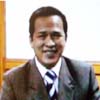
Assoc Prof Dr Nguyen Dinh DUONG
Vietnamese Academy of Science and Technology Institute of Geography (VAST)
Director, Department of Environmental Information Study and Analysis
I think that all countries like Vietnam which are hit by many typhoons every year will use all information sources for disaster management. One of the information sources is the earth observation satellite data. The satellite data is very important for disaster management from many points of view. The satellite can get images of large areas and it has a function of revising observations. So, we can observe the area before and after disasters.
Nowadays there is a microwave sensor which is all weather sensor and data can be gotten day and night regardless of weather conditions. We are required to process the data and for its successful application in disaster management we need to get the data and also build capacity to make training; we also need to prepare for adequate use of the satellite data combining it with all geographic information. The satellite data itself cannot be used independently from the information source for disaster management, so if we can combine the data with a geographic information layer, it can be an excellent tool for disaster management.
I think that APRSAF is an excellent forum for information lectures. It is not a scientific conference. Participants of APRSAF come from many different backgrounds in remote sensing and many different levels of understanding of remote sensing in the special geo-science, from both technical and management departments. APRSAF is an open forum where we discuss actively and many opinions are stated, so we can see views from many experts and not experts of remote sensing.
I think it is quite useful that we know many opinions, which sometimes make us change policies to fulfill the requirement of scientists and decision makers. I think this is very important. APRSAF is like a community of users but JAXA should play like a driver who goes the forefront leading the community to a better application of earth observation data.
Video Interview (Movies) (coming soon)
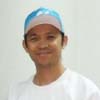
Dr Utoro SASTROKUSUMO
Institute Teknologi Bandung
Principal Adviser/Researcher in Telecommunication
School of Electrical Engineering and Informatics Twenty-nine students between 11 and 18 years old selected through national competitions held in Australia, Cambodia, China, India, Indonesia, Japan, Malaysia, Philippines, Republic of Korea, Singapore, Sri Lanka, Thailand and Vietnam spent three days together in Jakarta, learning about space science and technology and expanding their friendship by sharing knowledge and skills to make and launch water rockets during the APRSAF Water Rocket Event. The event was held from December 7 to 9 and co-organized by the National Institute of Aeronautics and Space of Indonesia (LAPAN), the Science and Technology Center (PPIPTEK) at TMII, the Ministry of Education, Culture, Sports, Science and Technology of Japan (MEXT) and the Japan Aerospace Exploration Agency (JAXA).
The participating students shot their water rockets toward the target line: 56 meters away from the point of launch. The farther the rockets landed from the target line, the less points were given. Each group of students had three chances to launch their rockets. Strong wind on the day presented challenges to determine the best direction and angle for launch as well as the amount of air to be pumped into the rocket.
Mr Tze Chow Fong from Singapore led the competition. Scoring 260 points out of 300 points, the highest possible score in total, Mr Fong won the first place. Mr Arciaga Michael from the Philippines, Mr Alfred James from Australia and Ms Sarina Mustafa from Indonesia followed, scoring 200 points. Through play-offs, Ms Mustafa won the second place and Mr James won the third place.
The competition was attended by 700 spectators and covered by fourteen local television and radio stations and newspapers.
During the Water Rocket Event, a seminar was also held on December 8 for the accompanying teachers and instructors to share experience and information on how they are promoting water rocket activities in their countries. The seminar resulted in creating a network of 25 teachers and educators as well as space experts from thirteen countries and two international organizations to make continuous efforts to enhance and expand water rocket activities for educational purposes.
Video Interview (movies) (coming soon)
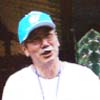
Prof Koh-ichiro OYAMA
Tokyo Metropolitan University
Faculty of Environment Design
Co-chairman of the Space Education and Awareness WG, Prof Oyama gave his comment to APRSAF members:
“The activities of each working group have been agreed upon year by year and a system to determine the action items and implement them has been established.”EMr Oyama hopes that the members of each group work more toward peace among countries of the Asian region in the future. “The main object of the Space Education and Awareness Working group is, of course, to enhance the education. Education is one of the most interesting and important issues around the world. The participants from each country are eager to take actions relating to this issue, and therefore some events like this water rocket competition have been held.”EHe looks forward to results from future activities of this working group.
“Children and students have curiosity about science potentiality and the important thing is to stimulate their curiosity.”EThe water rocket event is one of the opportunities to stimulate their curiosity and Mr Oyama wants very much this event to be continued.
As a plan for the future, the third water rocked tournament event is scheduled during next year's APRSAF-14 in India. The world tournament of water rocket (like Olympics) is expected to constitute a next step in the near future.
Video Interview (movies) (coming soon)
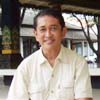
Dr Toto Marnanto KADRI
National Institute of Aeronautics and Space (LAPAN)
Head, Bureau of Cooperation and Public Relation
“My impression is that APRSAF-13 has been excellent and we could have a valuable opportunity in Indonesia by co-hosting APRSAF-13.
I think that during the meeting there was a very good exchange among Asia-Pacific region participants in the APRSAF-13.
Thank you very much, JAXA, because I think that APRSAF is a very famous event. We were given the opportunity to hold APRSAF-13 in Indonesia; we hope that APRSAF will provide poor countries in the Asia-Pacific region with opportunities to exchange opinions about space so that they can develop the use and advancement of space technology for peaceful purposes.
We hope that the APRSAF will contribute to share the space technology and use of application of space in the Asia-Pacific countries.
Concerning Water Rocket Competition, young people from many Asia-Pacific countries know each other and work together as friends while competing among themselves friendly during the water rocket competition.
The APRSAF is pioneering something for the young generation. They can get various chances and have variable experiences. This will be very useful for their future lives.”
Video Interview (movies) (coming soon)
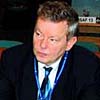
Prof Dr Hans J. HAUBOLD
United Nations Office for Outer Space Affairs
Senior Program Officer, Space Applications Section
UN Office for Outer Space Affairs is very grateful to have been invited to the APRSAF.
We have been organizing this forum for a long time since its first event.
It is encouraging to see that the countries in the Asia-Pacific region are strengthening their cooperation in the application of space technology.
Space technology application is most beneficial in the preparation of people in their own nation and region. It is important for disaster management, disaster warning, and disaster mitigation. We can see that countries are coming closer and closer in collaborating on prediction and mitigation of natural disasters.
The same progress has been made to use the satellite communications. The very important issue is switched to supply almost all space technology. We will report back to Vienna to our headquarters of UN about the outcome of this space agency forum.
I take this opportunity to congratulate related organizers of this important scientific event and I hope that this cooperation will be profitable in the future, always keeping peace in mind. I would like to celebrate with the working groups in the space agency forum. They have provided the forum with their recommendations and observations. They are working in the process today, which again is very important for the earth observation, space technology use, and satellite communications for ISS to benefit the Asia Pacific region. We must not forget that the working groups and forum emphasize education, awareness and outreaches, which are three very important issues to bring the understanding of the application of space science of technology to the general public.
Video Interview (movies) (coming soon)
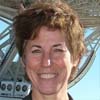
Dr. Miriam BALTUCK
Commonwealth Scientific and Industrial Research Organisation
Director, Canberra Deep Space Communication Complex and NASA Operations
It is delightful to be in Jakarta for APRSAF 13. APRSAF provides a wonderful blend of information exchange and networking opportunities so that member countries can learn about each other's activities and develop new ways of collaborating. The working groups emphasize the most widespread space-based activities in the region, from practical applications in earth observation and space communication to promising new projects based around the International Space Station. Equally important to the future of our region, the education and space awareness working group inspires young people to pursue careers in science and technology. It is science and technology that fuels economic growth and development, and space is one of the best showcases for attracting young people to these fields.
It has been inspiring to see the development of Sentinel from a CSIRO research and development project focused on wildfires to an ongoing activity adopted by the operational government agency Geoscience Australia. The continued evolution and growth as Sentinel Asia considers a range of disaster applications shows how timely earth observation could used to mitigate the consequences of a natural disaster. Sentinel Asia is only one example of how information exchange opportunities and specific working group foci provided by APRSAF can lead to multi-lateral collaborations that broaden the scope and service of the original programs.
Video Interview (movies) (coming soon)